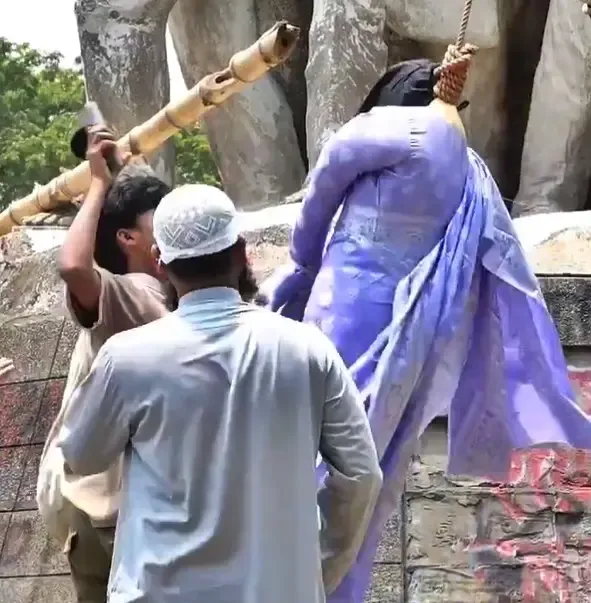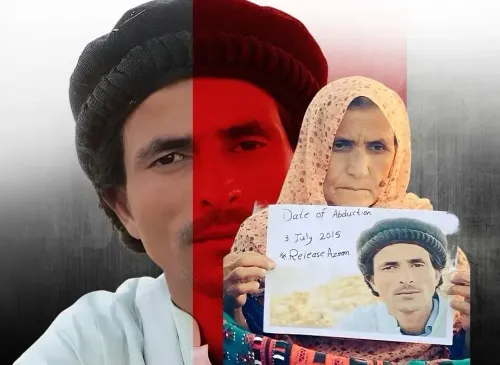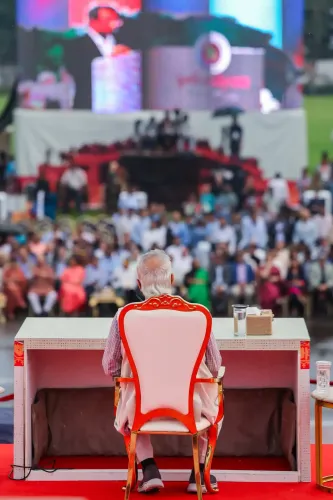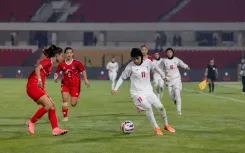Is Bangladesh's Radical Islamist Group Demanding the Dissolution of Women's Reform Body?

Synopsis
Key Takeaways
- Hefazat-e-Islam demands dissolution of the Women's Affairs Reform Commission.
- Law enforcement agencies are on high alert in Dhaka.
- Approximately 300 legal cases are pending against Hefazat leaders.
- The group threatens to paralyze the nation if demands are unmet.
- The previously strong political unity is fading.
Dhaka, May 3 (NationPress) Amidst the rising tide of Islamic extremism in Bangladesh, thousands of leaders and activists from the radical Islamist group Hefazat-e-Islam gathered in Dhaka on Saturday to call for the dissolution of the Women's Affairs Reform Commission.
Moreover, the Islamist organization sought the withdrawal of legal cases against its leaders and a prohibition on the Awami League, as reported by local media.
Law enforcement agencies remain vigilant, with personnel from various security forces, including both plainclothes and uniformed police, deployed at critical locations throughout the city since early morning.
According to a UNB report, approximately 300 cases are currently pending against the Hefazat leaders.
On Friday, Hefazat-e-Islam threatened to bring Bangladesh to a standstill if their demands, including the abolition of the Women's Affairs Reform Commission, were not promptly addressed.
While addressing a protest rally outside the Baitul Mukarram National Mosque in Dhaka, Maulana Junaid Al Habib, the organization's central senior vice president, warned that the capital would come to a halt on Saturday if their demands were ignored.
"The government's deadline is by tomorrow. If no action is taken, the country will face severe consequences," stated the Islamist leader.
Another Hefazat leader, Mohiuddin Rabbani, cautioned that stricter measures would be initiated if the cases against Hefazat leaders and scholars were not dropped and the women's commission was not abolished.
Last week, Hefazat-e-Islam issued a stark warning that Chief Advisor Muhammad Yunus would share the same fate as former Prime Minister Sheikh Hasina if the proposals from the women's commission were implemented.
Previously, at various protests held nationwide, the Islamist group labeled the proposals from the women's reform body as "anti-Islamic."
During a recent public gathering in Narayanganj district, Mamunul Haque, joint secretary general of Hefazat, remarked that the women's commission has blatantly disregarded Islamic law by asserting that religious and social norms are the primary causes of discrimination against women in the nation, as reported by the leading Bangladeshi daily, The Business Standard.
"Yunus Saheb has expressed intentions to expedite the implementation. He is contradicting Islamic inheritance law. While we have previously respected him, if he pursues this course, we cannot differentiate him from Hasina," stated Haque.
Previously, extremist groups had allied with student leaders and Yunus to topple the democratically elected Awami League government.
The once-celebrated unity among political factions in Bangladesh, which was evident during the ousting of Hasina in August 2024, is steadily eroding.









